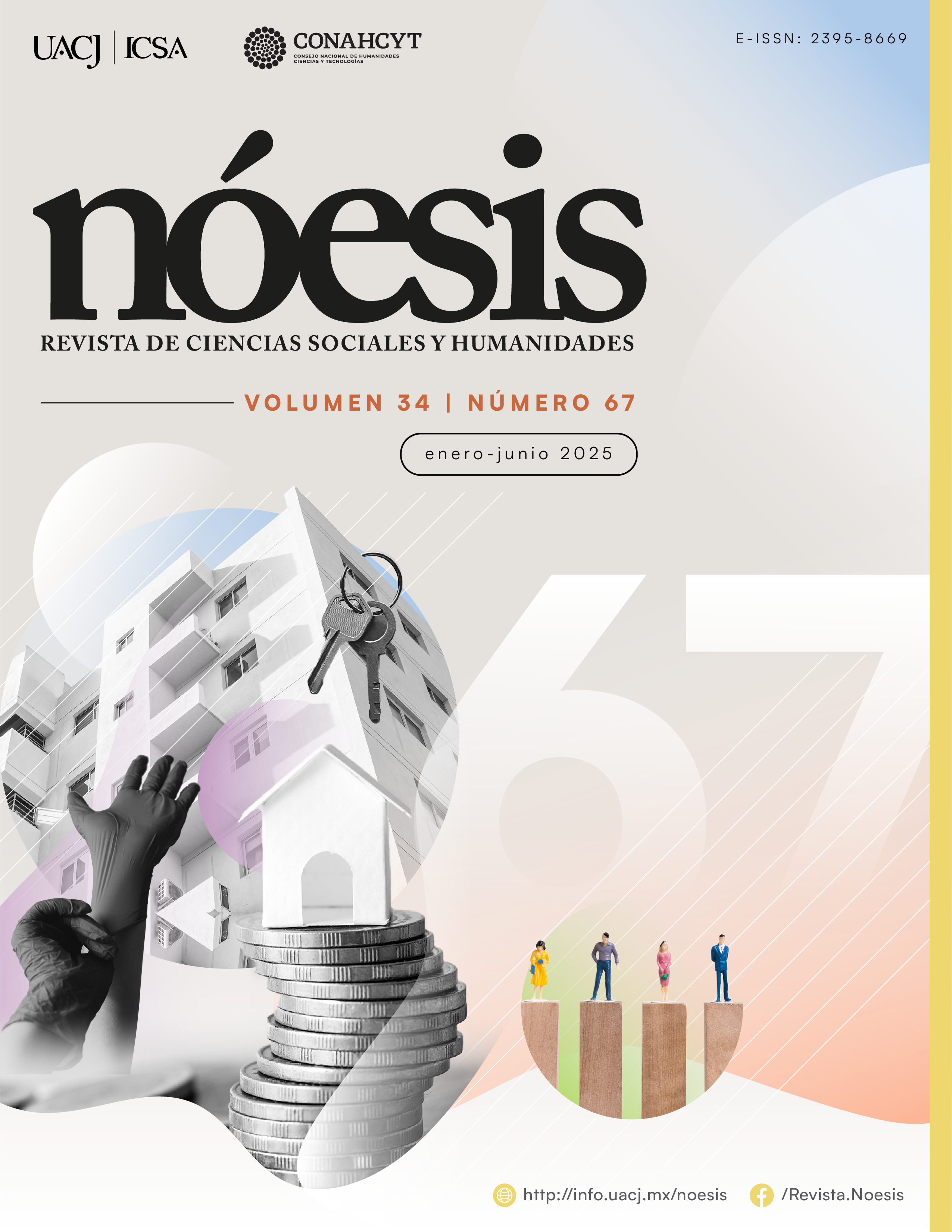Characterization of the vote in Mexico City
Main Article Content
Abstract
Voting is important for elections and in democratic systems of government. The consideration of it varies according to societies, countries, times, groups and people. Its study also considers different approaches. In this case, a general approach is made to the conception and assessment of voting according to citizens. Specifically, its importance, respect, trust, information, reasons and motives. All this through some questions from a pre-election survey, and fundamentally, through the testimony collected in interviews conducted in Mexico City, before and after the electoral call on June 2, 2024. This in order to obtain direct testimonies from people, their perception and opinion, expectations and experiences, imaginary configurations and political behaviors, in short, their reflection and feeling on the subject. As a finding, it is possible to say that voting is very important as information is, elections are not respected and trusted, the main reasons for exercising it are the right and democracy, and the reasons, the program and change.
Downloads
Article Details

This work is licensed under a Creative Commons Attribution-NonCommercial-ShareAlike 4.0 International License.
References
Acuña Chaverri, I. A. (2009). Elementos conceptuales del clientelismo político y sus repercusiones en la democracia. Reflexiones, 88 (2), 27-36. https://www.redalyc.org/pdf/729/72917900002.pdf
Admed, S. (2015). La política cultural de las emociones. UNAM.
Almond, G. & Verba, S. (1963). The Civic Culture: Political Attitudes and Democracy in Five Nations. Princeton University Press.
Arias Maldonado, M. (2016). La digitalización de la conversación pública: redes sociales, afectividad política y democracia. Revista de Estudios Políticos, (173), 27-54. https://recyt.fecyt.es/index.php/RevEsPol/article/view/52484
Bourdieu, P. (2001). El capital social. Apuntes provisionales, Zona Abierta, (94-95), 83-88. https://www.studocu.com/ca-es/document/universitat-de-barcelona/politica-social/bourdieu-capital-social/11309999
Campbell, D. E. (2006). Why we vote? Princenton University Press.
Campbell, A.; Converse, P.; Miller W. & Donald Stokes (1960). The american voter. Wiley.
Castilla del Pino, C. (2000). Teoría de los sentimientos. Tusquets.
Castro, M. C. & Arellano, M. C. (2024). La teoría fundamentada en la investigación social: experiencia en un estudio sociocultural en salud. Nóesis, Revista de Ciencias Sociales y Humanidades, 33 (66), 1-17. https://doi.org/10.20983/noesis.2024.2.1
Downs, A. (1957). An Economic Theory of Democracy. Harper Collins Publishers.
Durand, V. M. (2004). Ciudadanía y cultura política. Siglo XXI.
Fiorina, M. (1976). The voting decisión: instrumental and expressive aspects, Journal of politics, 38 (2), 390-413.
http://dx.doi.org/10.2307/2129541
Flores, R. & Saldierna, A. (2017). Tendencias en el estudio del comportamiento electoral en México. Apuntes Electorales, 16 (56), 39-65. https://aelectorales.ieem.org.mx/index.php/ae/article/view/82/31
Gallego, J.A. (2007). La reciprocidad y la paradoja del votante. Revista de Economía Institucional, 9 (16), 149-188.
https://www.redalyc.org/articulo.oa?id=41991607
Guber, R (2013). El salvaje metropolitano. Paidós.
Gutiérrez, A. (2019). Gestionar las emociones políticas. Gedisa.
INEGI (2024). Encuesta nacional sobre disponibilidad y uso de tecnologías de la información en los hogares (ENDUTIH) 2023. https://www.inegi.org.mx/contenidos/saladeprensa/boletines/2024/ENDUTIH/ENDUTIH_23.pdf
Kuschick, M. (2006) Cambio y continuidad en la percepción política de habitantes del Distrito Federal medido por encuestas. Gestión y estrategia, 29, 35-48. https://gestionyestrategia.azc.uam.mx/index.php/rge/article/view/182/877
Kuschick, M. (2012). El papel de las encuestas de opinión en las elecciones federales de 2012. UAM/INE.
Lazarsfeld, P; Berelson, B. & Gaudet, H. (1062). El pueblo elige, estudio del proceso de formación del voto en una campaña presidencial. (6ª.ed.), Paidós.
Luján, N. (1999). La construcción de la confianza política. INE.
Luhmann, N. (1996). Confianza. Anthropos.
Merino, M. 1995. La participación ciudadana en la democracia. IFE.
Morales, M. G. & Fernández, L. A. (2019). ¿Por qué ganó López Obrador? En Morales, M. G. & Fernández, L. A. (Coords.) Elecciones 2.0 y partidos viejos. Las elecciones mexicanas de 2018. (15-52) INE/UAQ
Norris, P. (2004). Electoral engineering: voting rules and political behavior. Cambridge University press.
Peschard, J. 1995. La cultura política democrática. IFE.
Real Academia Española (RAE) (2023). Poco https://dle.rae.es/poco
Regular https://dle.rae.es/regular?m=form
Bastante https://dle.rae.es/bastante?m=form
Sobral, M. (2023). Votar: un deber ciudadano. Animal Político en IMCO https://imco.org.mx/votar-un-deber-ciudadano/
Sonnleitner, W. (2018) La fábrica de la des-confianza. En Premio nacional de investigación social y opinión pública. (49-88) CESOP.
Sonnleitner, M. (2017). Variedades del voto: hacia la sociología plural del sufragio particular. Estudios Sociológicos, 35 (104), 429-448. https://www.scielo.org.mx/pdf/es/v35n104/2448-6442-es-35-104-0429.pdf
Sousa, J. (2023). El dilema de los votantes entre candidatos honestos y competentes en las elecciones de 2018 en México y Brasil. Noésis, Revista de Ciencias Sociales y Humanidades, 32 (64), 1-21. https://erevistas.uacj.mx/ojs/index.php/noesis/article/view/5743/7259
Sztompka, P. (2000). Trust: A Sociological Theory. Cambridge University Press.
Tejera Gaona, H. (2020). La formación y funcionamiento de las relaciones político-clientelares asociadas al mantenimiento y reproducción de la estructura política de la Ciudad de México. En Cadena Roa, J. y López Leyva, M. (Coords.) Las izquierdas mexicanas hoy. Las vertientes de la izquierda. (333-364). UNAM.
Torres Ruíz, R. (2017). El voto en México: ayer y hoy. Espacios públicos, 20 (48), 27-44. https://www.redalyc.org/pdf/676/67652755002.pdf
Vargas, L. M. 1994. Sobre el concepto de percepción. Alteridades, 4 (8), 47-53. https://alteridades.izt.uam.mx/index.php/Alte/article/view/588/586
Valdés, A. & Huerta, A. (2011). ¿Qué mueve a los votantes? Un análisis de las razones y sinrazones del comportamiento político del elector. Razón y Palabra, 75, 1-34. https://www.redalyc.org/pdf/1995/199518706052.pdf

